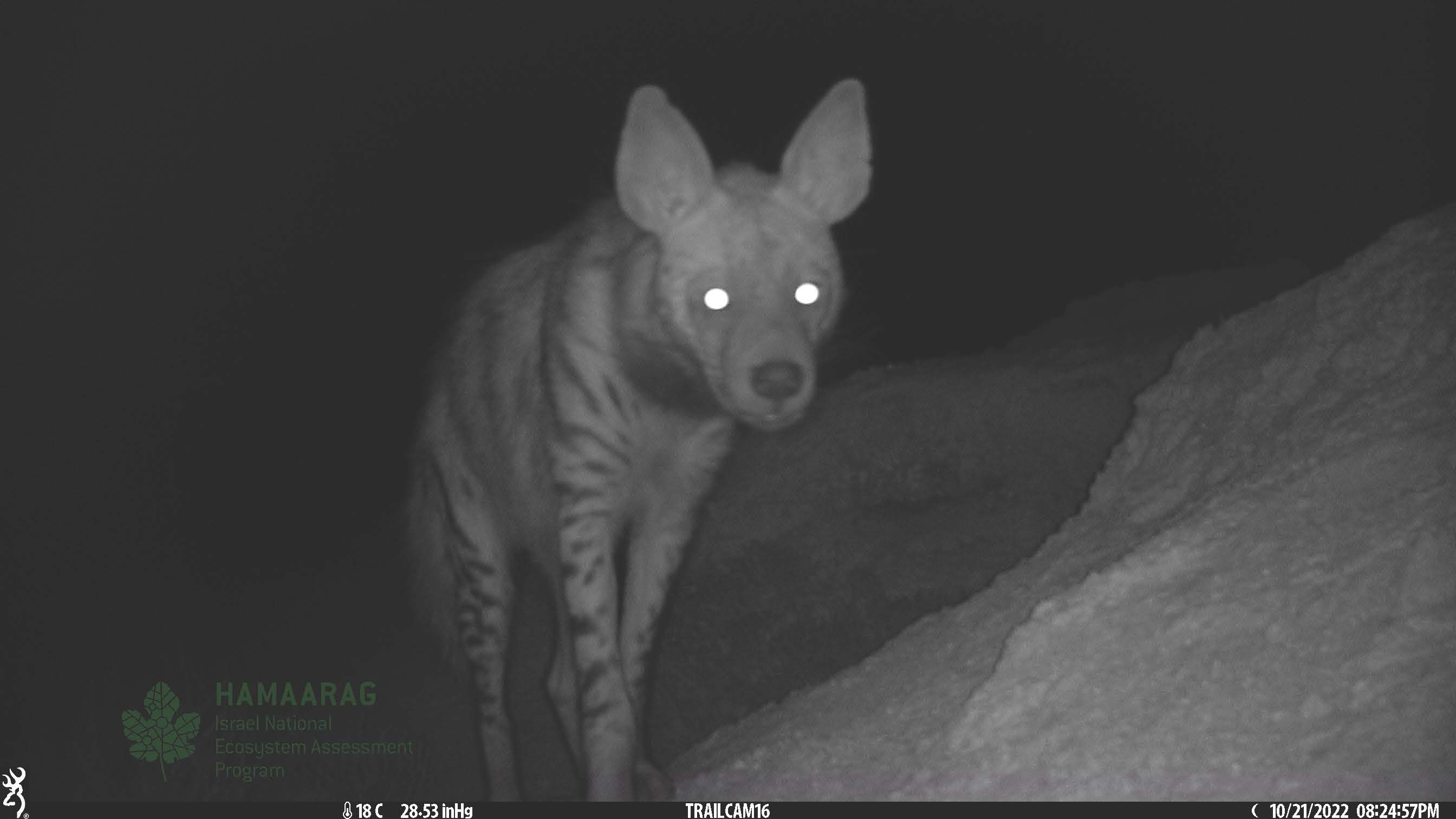Few previous studies on the factors that affect Striped Hyaena (Hyaena hyaena
Linnaeus, 1758) occurrence and densities were done on geographically unrelated populations
using different methodologies. In Israel, hyaenas occur throughout the country’s
steep climatic and geographical gradients, presenting a unique opportunity to
study densities and habitat use across adjacent ecosystems using a unified methodology
and test previous conceptions regarding the species’ habitat selection. We collected
hyaena abundance-absence data using 1440 camera traps placed at 80 sites (2012–
2016). Site location ranged from hyper-arid deserts to dense Mediterranean shrubland.
We assessed the effect of climate, habitat structure, elevation, geomorphological attributes
(proxy for den availability), and anthropogenic development (proximity to settlements
and agriculture) on hyaena densities using N-mixture models. Hyaena densities
were negatively affected by anthropogenic development, and were limited by den
availability. Hyaena densities did not follow a climatic or geographic gradient. Densities
were highest at hyper-arid deserts and Mediterranean coastal shrublands. Despite
the former conception that hyaenas prefer semi-arid open habitats and avoid extreme
deserts and dense vegetation, we show that hyaenas use and even thrive in these habitats
when geomorphological conditions are suitable and resources are available.
Limiting factors of Striped Hyaena, Hyaena hyaena, distributionand densities across climatic and geographical gradients (Mammalia: Carnivora)
תיאור הדו״ח
Hila Shamoon & Idan Shapira's article was published in the journal Zoology in the Middle East, 2019


